Resolutions. We’re supposed to have them, right? Become a better you in the new year! Exercise, save money, eat right! Those things are great and all, but we’ve laid out a few other ideas to help start your year off, as James Brown says, on the good foot. Godspeed.
Clear the Clutter
Last year, as I prepared for a move, I’d poke my head in the spare room and scan the piles of stuff that had accumulated. After living in the house nine years, it had become a catch-all. Thrift store scores, stacks of old magazines, clothes I no longer wore but couldn’t let go of. Each time I surveyed, I panicked. Why did I have so much stuff? Where would I begin in sorting this mess? The thoughts overwhelmed me. I avoided the room like the plague, until I couldn’t anymore.
 Illustrations by Greg Cravens
Illustrations by Greg Cravens
I’d bet many of you have the equivalent of my old spare room. Maybe it’s not a whole room, but perhaps a closet or a junk drawer, the backseat of your car or a garage. Studies have shown that clutter creates stress — giving us heightened cortisol (“stress hormone”) levels, preventing our ability to focus, triggering avoidance measures, and hindering creativity.
Let us not carry so much stuff with us in 2020. Start with baby steps, setting aside, say, 20-minute increments to target one area. Ask yourself: Do I really need three ice cream scoops? Have I worn this jacket in the past year or two? Am I ever actually going to collage with these magazines I’ve held onto for a decade? Pack up the items you no longer need and donate them to a local charity. (And don’t leave the donation boxes in your trunk for months. Finish this task!) If the items hold no value, close your eyes (like I did) and throw them in the trash where they belong. Then ride the wave of clean-space satisfaction.
While you’re at it, declutter your digital life, too. Too many photos saved in your phone, taking up its memory? Back them up, maybe even print some of them, and “delete all.” It’s okay, they still exist. Are you a perpetual unread-email offender? Hell, if you’re not going to read them: 1) select all, 2) de-lete! Do you have 1,700 Facebook friends and only communicate with 50 of them? Does their existence on your timeline cause you to frequently roll your eyes or quietly assert “Idiot!”? Click that unfriend option.
Tidy up your physical and digital spaces and kick off the new year with a clean slate. — Shara Clark
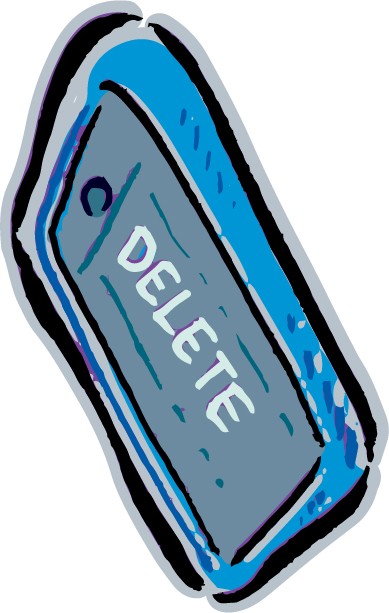
De-Program
I knew I had a problem when I dreamed in a Reddit scroll.
My dreaming brain did its thing — stress at work or wonder in a fantasy land. But it was all formatted in the too-familiar structure that included a heading, a catchy title, and a post. I woke feeling shamefully programmed, kind of like these lines from MGMT’s “TSLAMP” (Time Spent Looking at My Phone):
“Find me when the lights go down
Signing in signing out
Gods descend to take me home
Find me staring at my phone …
I’m wondering where the hours went
As I’m losing consciousness
My sullen face is all aglow
Time spent looking at my phone”
A wave of developers — the people who brought the world everything from Facebook to push notifications — have publicly admitted that they designed apps and phones to hook customers using the same brain pathways as gambling and drugs. I wanted to de-program from all that toxic fuckery. Here are some things that worked for me.
Check your screen time — Quantifying the issue allowed me to see it fully, plainly, and start reducing it. This method is a bit like counting calories, though. It can be tedious, but the unfiltered data about your relationship with your phone is right there … on your phone.
Start a fire — When I have a blazer roaring in the fire pit, my phone seems like this inconsequential rectangle full of worlds I no longer care about. My brain de-programs in the trance of orange-and-red flame, the smell of burning wood, and all of the merry hisses and pops. Don’t have a fire pit? Head to Loflin Yard or Railgarten. Grab a drink. Turn off your phone and tune out.

Take a hike — Nothing de-programs a digitized brain like the woods. Overton Park’s Old Forest Trail has been a refuge for me since I moved here more than a decade ago. Its many trails are clearly marked, but the trees, vines, and brush grow wildly (more or less), much the same as they did when tweeting was something only birds did.
When I’m hiking, I’m not watching to see how many likes I got on my IG breakfast post. I’m watching the trail, making sure my next footstep isn’t into deep mud or on a rattlesnake.
Dive in — Yes, some phones are now “waterproof” (check tech specs closely there). Yes, some headphones are now fully submersible. So yeah, you might be able to hear The Joe Rogan Experience while lapping the pool, but you shouldn’t. The pool is another de-program zone. In the water, you focus on more elemental things — not drowning, for one. Also, more likely than not, you will be physically separated from your phone.
Lean into all of that. Be in the moment. Your phone will wait. Mine did. — Toby Sells
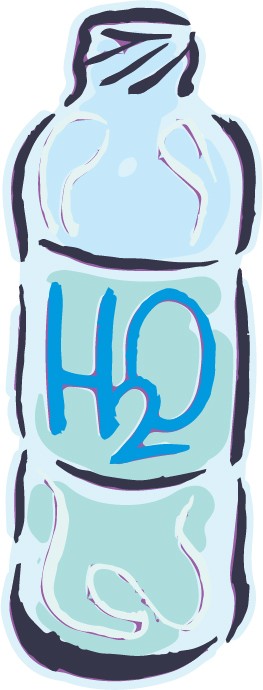
Stay Hydrated
What affects your heart, kidneys, metabolism, and cognition? Water. And odds are, you’re not drinking enough of it.
The average human body is comprised of more than 60 percent water. In fact, you could say we’re just walking, talking bags of well-organized water with some trace elements like calcium and iron added for flavor. With that much wet stuff sloshing around and catalyzing the chemical reactions we all need to continue walking and talking, you’d think that a small drop in hydration wouldn’t be a big deal.
You would think wrong. If you’re operating at an aqueous deficit of as little as 2 percent, you will start to feel symptoms of dehydration. If you’re exercising or competing in a strenuous sport, your performance will begin to suffer. You might be more prone to cramping, and your reaction times and thinking might get worse. By the time your deficit reaches 4 percent, your body temperature could start to soar, and your heartbeat could get irregular. If it gets worse, you could become disoriented or faint. If you’re chronically dehydrated, things could go south very badly with very little warning. If you’re one of the 7 percent of women and 13 percent of men who have the right kind of body chemistry, chronic dehydration means you’ll get kidney stones. Trust me, you don’t want that.
So what to do? The answer is simple: Drink water. The number that’s been bandied about for years is eight, 8-ounce glasses of water per day. That’s not true for everyone, as bodies come in many shapes, sizes, and exact compositions of trace elements. But it can’t hurt. It’s unlikely you’ll drink too much water, although hyponatremia, a condition where the salts in your blood become too dilute, is no fun.
You can get water from coffee (the diuretic effect is too small to cancel out the water you’re gaining, unless you’re chugging java like Special Agent Dale Cooper on a three-day stakeout), from soups and stews, and from foods like lettuce. Sports drinks, like Gatorade, are useful if you’re exerting yourself or are outside in hot weather, but too much over time will deliver too much sugar. Your best bet is just plain tap water, ingested steadily throughout the day. If you’re thirsty, you’re already getting dehydrated — especially if you’re older. Your urine should be a pale color. If it’s dark yellow, have some water.
The best part of staying hydrated? It’s great for your skin. Drink a lot of water, and you’ll look younger. So make a resolution to hoist a few H2Os in 2020! — Chris McCoy

Get Outside Your Comfort Zone
If ever there was a man devoted to his comfort zone, it’s me. What’s that expression — stay in your lane? I do, and how. I write about music and books and sometimes booze and nightlife, and I spend a lot of time going to concerts or reading, sometimes while drinking. Still, for all my devotion to my familiar routines, the most rewarding experiences from 2019 all came when I mustered the nerve to get outside my comfort zone. I played a new game I thought I’d be no good at, tried cooking a new meal or two, and even went to a health spa while on a press trip. I adopted a kitten despite having unconsciously inherited my dad’s distaste for cats. Turns out, I love cats!
More recently, for the holidays, I took a trip to the mountains of Idaho to visit my girlfriend’s family. In a word, it was terrifying. Everything was cold, and I was surrounded by rugged, outdoorsy types who looked like they’d never heard of Big Star but could ski down a mountain blindfolded. But I was determined to have a good time. I listened to Elvis’ “Blue Christmas” and Otis Redding’s “Merry Christmas Baby,” and those familiar holiday tunes never sounded as sweet as when they reminded me of my home. I read the local alt-weekly, and I marveled at the high desert scenery as we wound our way up steep mountain roads and through Boise National Park. I saw snow and lived. And I’m not talking about a light dusting or flurries that never had a snowball’s chance in hell of accumulating. No, I mean snow up to my knees. I rode an inflated inner tube down a snow-covered mountain. Not only did I avoid breaking an arm or getting frostbite, as I was sure would happen, I had a whole lot of fun.
Sydnie’s family wanted me to ski, but I decided that was a little too much outside my comfort zone. So I decided to take baby steps. I’ll get there, in my own time and after a lesson or two, and I’ll probably fall down a lot, but that’s okay. For a Southern boy who restocks the milk and bread at the first sighting of snowfall, I think I made some serious strides.
So however you do it, get outside your comfort zone this year. After all, all the things you love now were new to you once, too. — Jesse Davis
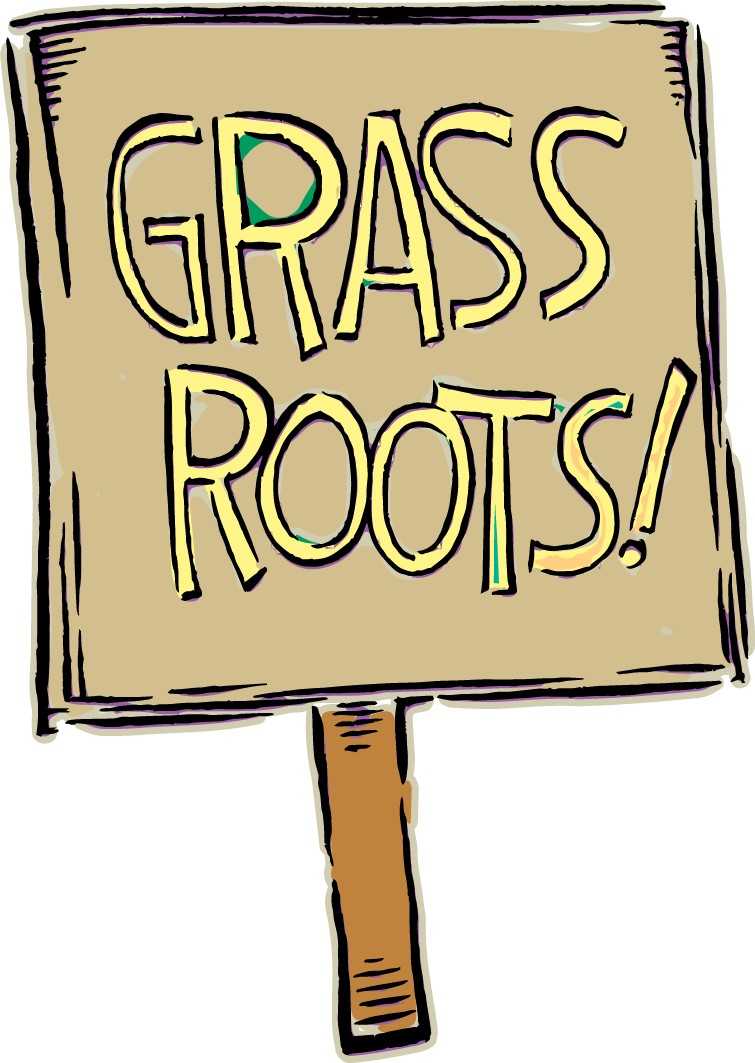
Get Civically Engaged
Do you want to be more civically engaged in 2020 but don’t know where to start? A Memphis City Council meeting is a good option. There, you can learn about what’s going on in the city and some of the issues that elected officials must tackle. The group meets every other Tuesday at city hall to discuss and vote on things like land use and new developments to utility rates and public transit budgeting.
The meetings are open to the public, and the agenda for each session is published online the Thursday prior. At each meeting, attendees are given the chance to voice support or opposition before the council. For those who can’t make it in person, the meetings are streamed live online.
Another reason to visit city hall is to attend the Civilian Law Enforcement Review Board (CLERB) meetings. The board meets the second Thursday of every month and is tasked with investigating allegations of misconduct by the Memphis Police Department. Under Tennessee’s Sunshine Law, these meetings are also open to the public.
Earle Fisher, a pastor at Abyssinian Missionary Baptist Church and activist, is often at public meetings. Fisher says his faith drives his civic involvement. “My faith motivates me to fight for social justice and black liberation in a city plagued by poverty, inequity, and political misrepresentation,” Fisher says. “We need more people of good will to be conscious, committed, and connected to what’s going on.”
In an effort to encourage increased political involvement in Memphis and Shelby County, Fisher founded UPTheVote901 in 2017. The nonpartisan collaborative works to empower, educate, and register voters. The group meets once a month, and the meetings are open to the public.
Whatever cause or issue you’re passionate about, there is likely a group created to address it. From the Memphis Bus Riders’ Union to the official Black Lives Matter chapter, grassroot efforts abound.
To find other ways to get involved and see a schedule of local meetings, check out the Memphis Activism Calendar online. The calendar was created to strengthen and unite the activism community. It lists meetings, workshops, trainings, demonstrations, rallies, and other ways to get plugged into social and community activism around the city. — Maya Smith

Find Your Roots
Viewers of the PBS series Finding Your Roots with Henry Louis Gates Jr. and Who Do You Think You Are? on TLC find themselves drawn in to family histories of strangers. Admittedly, some are celebrities, but the various grandmas and uncles of these celebs aren’t famous, and yet their stories are often compelling. It might make you wonder if you have some amazing ancestral tales. Chances are you do, but you’ll need to do some investigating, unless one of your more dogged relatives has constructed a family tree with plenty of history and anecdotes.
Still, much of the fun is in looking through past records to see who’s who in your bloodline. There are a couple of ways to get started. Google genealogy sites and you’ll find plenty of options. One of the more popular is ancestry.com, a subscription service. You can build your family tree and research its ever-growing library of data. Be forewarned that there are many variations in so-called facts. Any given ancestor’s name may be spelled various ways, a birthplace may be approximate, dates — birth, wedding, or death — can be all over the place or missing. But if you like puzzles, you’ll enjoy gathering the references and seeing which are likely to be accurate.
Much of the information you get going through these sites is little more than names and dates. You’ll often find places people lived and military services. It’s more of a challenge to find out who they really were. Some professional genealogists and many amateurs gather information that talks about personalities and achievements, and that’s grand if you can come across it.
While you can rely on what someone else has done, there’s lots of satisfaction in doing it yourself. In other words, go talk to the old people in your family and take a recorder. Ask them to talk about themselves (they’ll love that) and about family stories, tales that have been passed on, and who were among the notables. I once visited an elderly aunt and she was happy to unload a big box of photos she’d had stashed away. I made her identify whoever she could until she got tired and threw me out. But I’d gotten a gold mine of information about my forebears and a great appreciation of their lives.— Jon Sparks

Grow Your Own Tomatoes
Growing your own tomato plants from seed is easy. In addition to being able to pick your own home-grown tomatoes, you get a feeling of self-satisfaction knowing they came from seeds you placed in the soil.
My last summer’s crop began with seeds I planted April 1st. The late Gary Barnett, who owned Bi-County Feed in Holly Springs, told me the first of April is the right time to plant tomato seeds. If you plant them too early, the seedlings will be spindly.
You can use a can with holes in the bottom for drainage, flower pots, or peat pots. I used egg shells. Put the shells back in the egg crate after you break them in half. Tear the top off the egg carton. When you’re ready to use them, poke a hole with a pin or a small nail in the bottom of the shell.
I put regular potting soil in each shell, just a little below the rim, and planted three or four seeds in each. You only need a little soil over each seed. I put them in a north window at my office and sprinkled them with water, using salt and pepper shakers filled with water, until the seedlings emerged.
Turn the plants each day so they’ll grow straight. Don’t let the soil dry out. Four weeks later, the compact plants are ready to plant outside. Keep them watered after you plant them. They like water. I still was picking my tomatoes at Thanksgiving.
I’ve had success with Roma tomatoes, which are a determinate variety. This means all the tomatoes basically will come at one time. You also can plant indeterminate varieties. These will keep producing all summer and into the fall.
I asked noted garden expert Felder Rushing about which tomatoes are better than others to grow from seed. “A seed’s a seed’s a seed,” he says. “Seriously. Seed Savers [Exchange] has over 4,000 types of tomatoes, and they’re all grown exactly the same.”— Michael Donahue
Help Others
In your search for the new you in the new year, you may find that helping others might be a step in the right direction.
This might involve volunteering time at soup kitchens or homeless shelters, but sometimes, opportunities may find you. This happened to local humanitarian, entrepreneur, and former musician, Matt White, who received national attention in June 2016 for spearheading Chauncy’s Chance, a fundraising campaign for local disadvantaged teen Chauncy Black.
It all began when Black approached White in a Kroger parking lot, offering his assistance in carrying White’s groceries to his car in exchange for a box of donuts.
“I felt a gentle tug telling me, ‘Buy this kid some groceries,'” says White.
He took Black into the store and bought him $70 in groceries, meanwhile finding out that Chauncy was a straight-A high school student who regularly picked up odd jobs to help his sick mother pay rent. After shopping, he gave Black a ride home, where he saw firsthand how little he and his mother had.
“When we got to his house, I was truly humbled,” White says. “He and his mom had nothing. They didn’t even have beds or furniture … and nothing in their fridge.”
White posted about his experience on Facebook and started a GoFundMe to raise money for a lawn mower for Black so he could earn some extra cash. To their surprise, the campaign kicked off, earning more than $300,000 within a few short months. This afforded Black and his mother new opportunities, like a new home, car, job, and school.
“I never thought in my wildest dreams that this single post would create such a tidal wave of kindness and encouragement from everyone,” White wrote on his Facebook page.
He has since led other online fundraisers, most recently Rick’s Redemption, which has raised nearly $4,000 for a minivan for a local homeless man.
White attributes his connection to God for allowing him to help people like Rick and Chauncy. “I tried to fill a hole with money, music, jobs, and relationships, but I just didn’t feel fulfilled until God pushed me to help others,” he says. — Julia Baker
Embrace Change
There’s something to be said for the idea that the best response when you’ve hit a wall in your personal development is to challenge it with a wrinkle so new that it not only is different from your habitual mode but may actually run counter to your usual practice. Case in point: I have a friend, a well-known local political figure, who, after a lifetime of being a soft-living sybarite, took to soaking in ice-cold bath water first thing in the morning. He reports new energy and a revitalized outlook.
Don’t wear suits? Start dressing to the nines. Conversely, do the jeans and jersey thing if you’re already a Beau Brummel type. Unmechanical? Learn how your car’s motor works. They say that people are, at some level, their opposites. Find that level, and get it to work for you.
As the motivational speaker Jim Hemmerling says, “Self-transformation is empowering, energizing, even exhilarating.” It’s also practical. There’s the example of the frog in a pot of boiling water. That meme is usually cast as a matter of the frog being thrust into the already boiling water, in which case he will either escape or the water will slowly be brought to boil with him already in it and he will get himself cooked. In the first case, the frog reacts to sudden, threatening change thrust upon him. In the second case, the frog passively accepts a lethal situation. Let us posit a third case — one in which the frog acts, without outside stimuli, to choose his own environment, proactively, and hops out of the pot on his own to investigate other opportunities.
A side effect of dramatic change is the sense of epiphany that normally goes with it. Not all of us will have an experience akin to that of Saul of Tarsus, who, in a flash of blinding insight, we are told, went from being the persecutor of a new religion to a historic role as its major proponent. But we all will have activated a new animating paradigm of some sort to go with whatever new gestalt we’ve created.
The change need not be monumental. Start cooking your own breakfast, if you don’t already. Leave for work 15 minutes earlier every day. Build in time at the gym. Whatever. And stay with it. By the time the new mode becomes a habit, you will likely find that your mind is now conditioned to look for other useful changes. Keep ’em coming. — Jackson Baker

Meditate
The benefits of meditation, long extolled in the East, are being widely recognized in Western medical research. Gone are the days when middle America viewed it as mere cultish exotica. This time of year, people from all walks of life are adding meditation to their resolution lists, and it’s easy to see why: We all could use reduced stress, greater focus, and the ability to ride out life’s ups and downs with a more even keel.
One clinical trial noted that the simple act of breathing is key to meditation’s benefits, being directly tied to increased levels of noradrenaline, a chemical related to our most intense forms of engagement. It even helps the brain grow new connections, “like a brain fertilizer,” in the words of sciencedaily.com.
For many who consider such a state of mind out of reach, meditation retreats can be a great way to jump-start a new routine. The Memphis area has countless yoga schools and ad hoc retreats, but two in particular jump out if you’d like a little more space.
One is the Magnolia Grove Meditation Practice Center in Batesville, Mississippi. Started some 15 years ago by the renowned Zen master Thich Nhat Hanh, it is modeled after his other centers, the Deer Park Monastery in California and the Blue Cliff Monastery in New York. Though one can book personal time whenever they’d like, most visit during group events, such as the silent retreat hosted in the spring (May 20th-24th this year). Other events, like the January 20th-23rd celebration of the Lunar New Year, or “Tết” (an important festival in Vietnamese culture), are scattered throughout the year.
At such retreats, expect to spend mornings meditating in your preferred style with others gathered in the great hall, followed by pitching in with chores and plenty of free time to contemplate one’s breath and steps.
Meanwhile, the Gray Bear Lodge is another nearby space, off the Natchez Trace Highway near Hohenwald, Tennessee. While Magnolia Grove is also a monastery and centered on its own school of Buddhism, Gray Bear is more eclectic. One retreat they’ll host this April is focused on Taoist Healing Sounds. In Chinese tonal therapy, specific notes promote harmony and balance. Other retreats, workshops, and lectures abound.
Sometimes learning how to change your mind, and thus your body, is just a matter of calling “retreat!” — Alex Greene

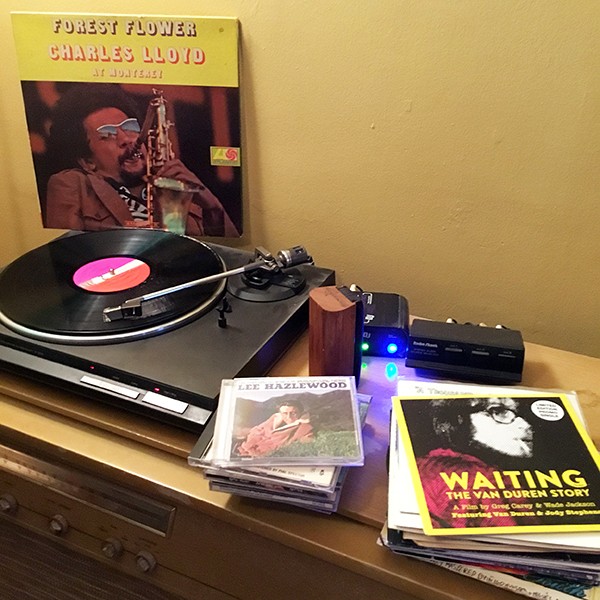 Alex Greene
Alex Greene 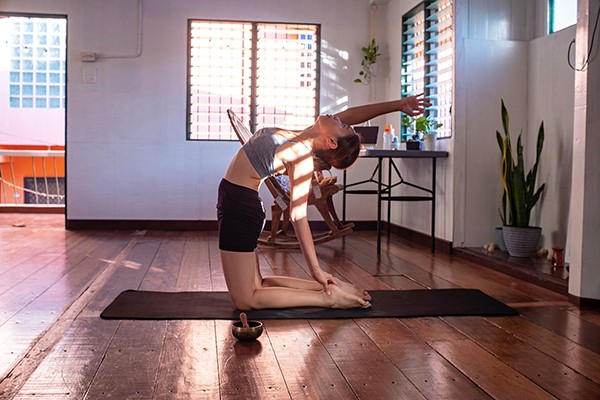 Maryjoy Caballero | Unsplash.com
Maryjoy Caballero | Unsplash.com 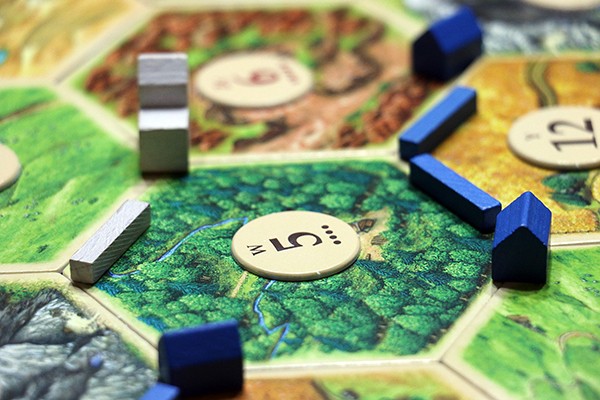
 Fizkes | Dreamstime.com
Fizkes | Dreamstime.com 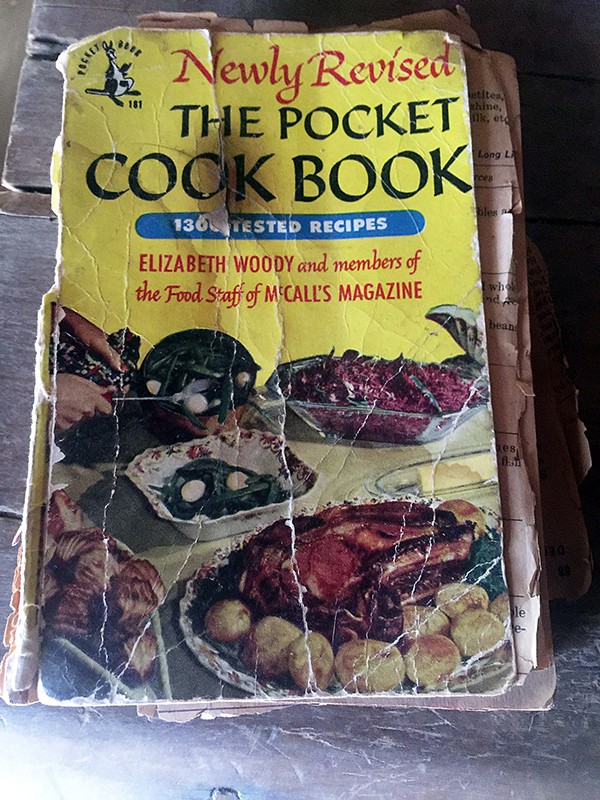 Michael Donahue
Michael Donahue  Jeepers Media
Jeepers Media  Bruce Vanwyngarden
Bruce Vanwyngarden 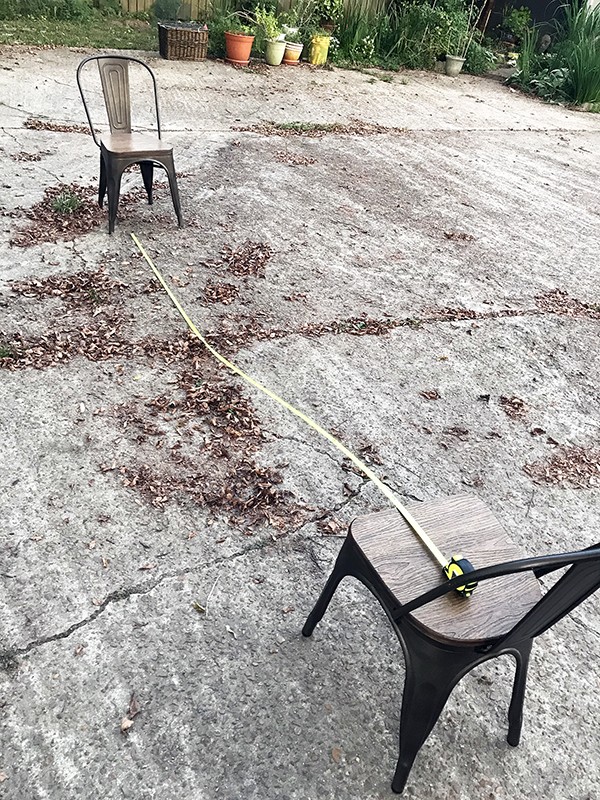 Jesse Davis
Jesse Davis  Illustrations by Greg Cravens
Illustrations by Greg Cravens 






